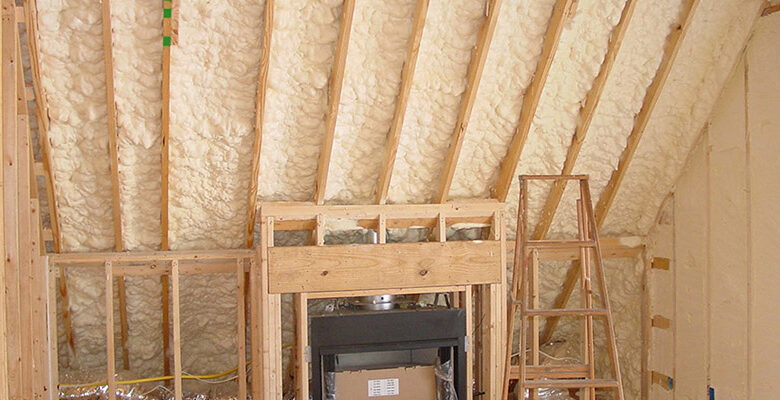Open Cell and Closed Cell Spray Foam Insulation Advantages

For its excellent ability to seal cracks and crevices, improve building energy efficiency, and raise the quality of the air inside, spray foam insulation has become the first choice for insulating homes and businesses.
Market offers two main types of spray foam insulation: open cell and closed cell. Each has special features and advantages that make it better for certain uses.
Overview of Spray Foam Insulation
Spray foam insulation is applied as a liquid and quickly expands into a thick, protective foam that conforms closely to the surface. This creates a thorough insulating barrier. It shows results covering the tiniest of gaps for an uncommon level of insulation coverage.
The choice between two types will depend on why you need insulation and its conditions.
Closed Cell vs. Open Cell Spray Foam Insulation
Closed Cell Spray Foam Insulation:
Its density and rigidity make closed cell foam a great choice for blocking drafts and heat transfer. With a higher R-value, this type of foam has better thermal resistance, which means it does a great job of keeping building temperatures stable. Also, because closed cell foam is compact, it makes the building stronger, which has a some important benefits:
- It does not let water through, so it is perfect for places that often get wet or flood.
- It keeps heat in and air out very well because closed-cell foam has great thermal properties.
- Closed cell foam’s dense nature adds a layer of structural support to the building – necessary for some architectural needs.
Open Cell Spray Foam Insulation:
Open cell spray foam is probably the better choice if you need to get rid of noise and be flexible with your insulation. This kind is less dense and lighter than closed cell foam, so it does not keep heat in as well, but certainly brings some other benefits:
- It reduces noise remarkably well for residential areas and office buildings.
- It’s easier to install in irregular spaces and around obstructions with expansive properties.
- Outdoor allergens and pollutants are less likely to get into a building through this type because it stops air leaks.
Selecting the Right Type of Spray Foam Insulation
To avoid poor insulation or possible structural problems, you’ll need to pick the right type of spray foam insulation:
- Closed cell foam, with its higher R-value, is suitable for exterior walls and areas that need solid insulation.
- Open cell foam is preferred for interior partitions and hard-to-reach areas due to its sound-dampening properties and flexibility.
There may be installation challenges varying by foam type. Closed cell foam’s rigidity can make it harder to apply in tight spaces, while open cell foam, although easier to install, may not give the same level of thermal resistance.
Professional Installation Process
The installation of spray foam insulation should always be performed by professionals to ensure effectiveness and safety.
Here’s a typical installation process:
- Initial Assessment: Professionals conduct thorough inspection to decide on the most helpful type of foam for the space.
- Risk Assessment: All safety protocols are made sure to be in place before installation begins.
- Application: Specialized tools are used to apply the foam evenly and comprehensively.
- Quality Checks: Post-application inspections confirm the consistency and completeness of the insulation.
- Support: Installers provide continuous support and advice for best experiences.
Bottom Line
Talking to experienced installers like Isothane can help you pick the best spray foam product for your project and make sure it is put in the right way to get the most out of it.
Installation and advice from a professional can make spray foam insulation a great investment for improving the performance of a building and the comfort of its occupants.
For more information, visit:




